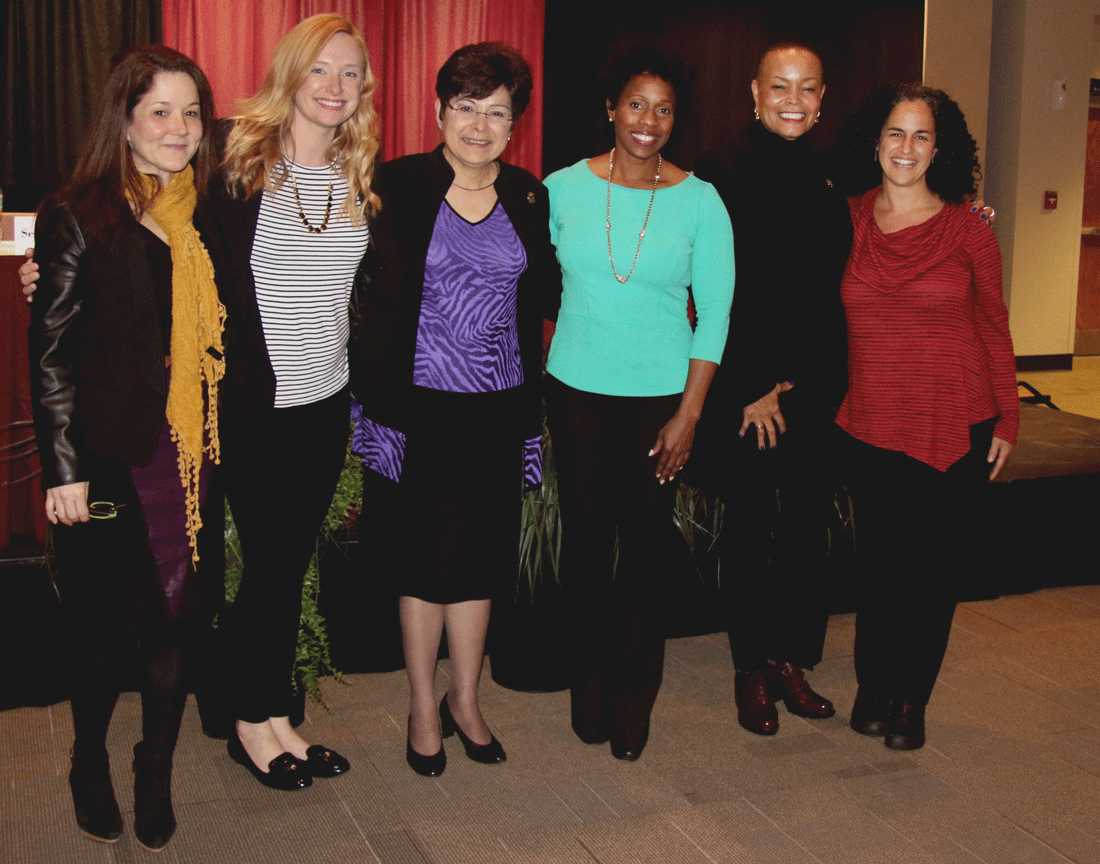UALR celebrates Women’s History Month with panel discussion
In celebration of Women’s History Month, the University of Arkansas at Little Rock honored Little Rock-area women working in public service and government careers.
The women engaged in a March 2 panel discussion in Donaghey Student Center to celebrate the Women’s History Month theme: “Working to Form a More Perfect Union: Honoring Women in Public Service and Government.”
Panel members included Dr. Zulma Toro, UALR executive vice chancellor and provost, Arkansas state Sen. Joyce Elliott, Jessica Sabin, political analyst, and Tjuana Byrd, assistant city attorney for North Little Rock and Sherwood public defender.
“It’s important to have women engaged in public service speaking personally to help us understand what that entails and what we need to think about as women who are engaging ourselves in those endeavors,” said Dr. Sarah Beth Estes, a professor of sociology, coordinator of UALR’s Gender Studies program, and associate dean of the College of Social Sciences and Communication, who served as the moderator for the panel discussion.
The event’s keynote speaker, Cherine Badawi, an experiential educator and instructional designer, thanked the panel members for serving in key roles that help break boundaries for women.
“I want to start by honoring the women upon whose shoulders we stand, because they have taken us far,” Badawi said. “The reality is we still have a really long way to go. With every generation, boundaries are broken and new stories are born.”
Badawi encouraged women to speak out as a form of empowerment.
“A huge part of women’s liberation and women’s struggle has been generated through the sharing of our stories. The women’s movement calls it conscious raising,” Badawi said. “As we share our stories, we start to see the larger systemic challenges we are facing. We recognize that we are not actually alone or isolated in the struggles we encounter. The power of story sharing, that is what builds momentum. That is what builds a revolution.”
Panel members credited education as an important tool that led to their successful careers. Sabin had three different majors in college. She wasn’t satisfied with her initial choice, and she feels fortunate people in her life encouraged her to pursue other studies that helped her identify her strengths.
“I started off as a biochemistry major. I thought I would end up going into research,” Sabin said.
“What I discovered is that I wasn’t happy. Everything I had been doing in my life up until that point was always something that made me happy.”
Elliott said that experiencing integration as a child is one of the factors that led her to become a teacher.
“It (integration) really propelled me to take my first job as a teacher in a school that was an integrated school, but they never had a black teacher there,” she said. “I went there with an expressed purpose. It was not just for the black kids. It was for the white kids as well. I think we totally miss the point sometimes that integration is meant for white kids and kids of other colors.”
As a lifelong educator, Toro sees education as a pathway to equality.
“I want to make a difference in the lives of students. I think education is the most effective method for social mobility,” Toro said. “If we are going to really have the country we all aspire to have, I think we have to provide access and help people get a college education.”
Marie Pleasant, a mother of five who is majoring in psychology, said hearing the successful women in the panel discussion was inspiring.
“I feel that women play a part in everything, more than just being a mother at home. I feel like this panel shows that women can do more, like Hillary Clinton running for president. Women can do anything, and we should be appreciated for it,” Pleasant said.
In the upper right photo, Women’s History Month panel discussion members, from left to right, include Dr. Sarah Beth Estes, panel moderator, Jessica Sabin, political analyst, Dr. Zulma Toro, UALR executive vice chancellor and provost, Tjuana Byrd, assistant city attorney for North Little Rock and Sherwood public defender, Arkansas state Sen. Joyce Elliott, and Cherine Badawi, keynote speaker.
